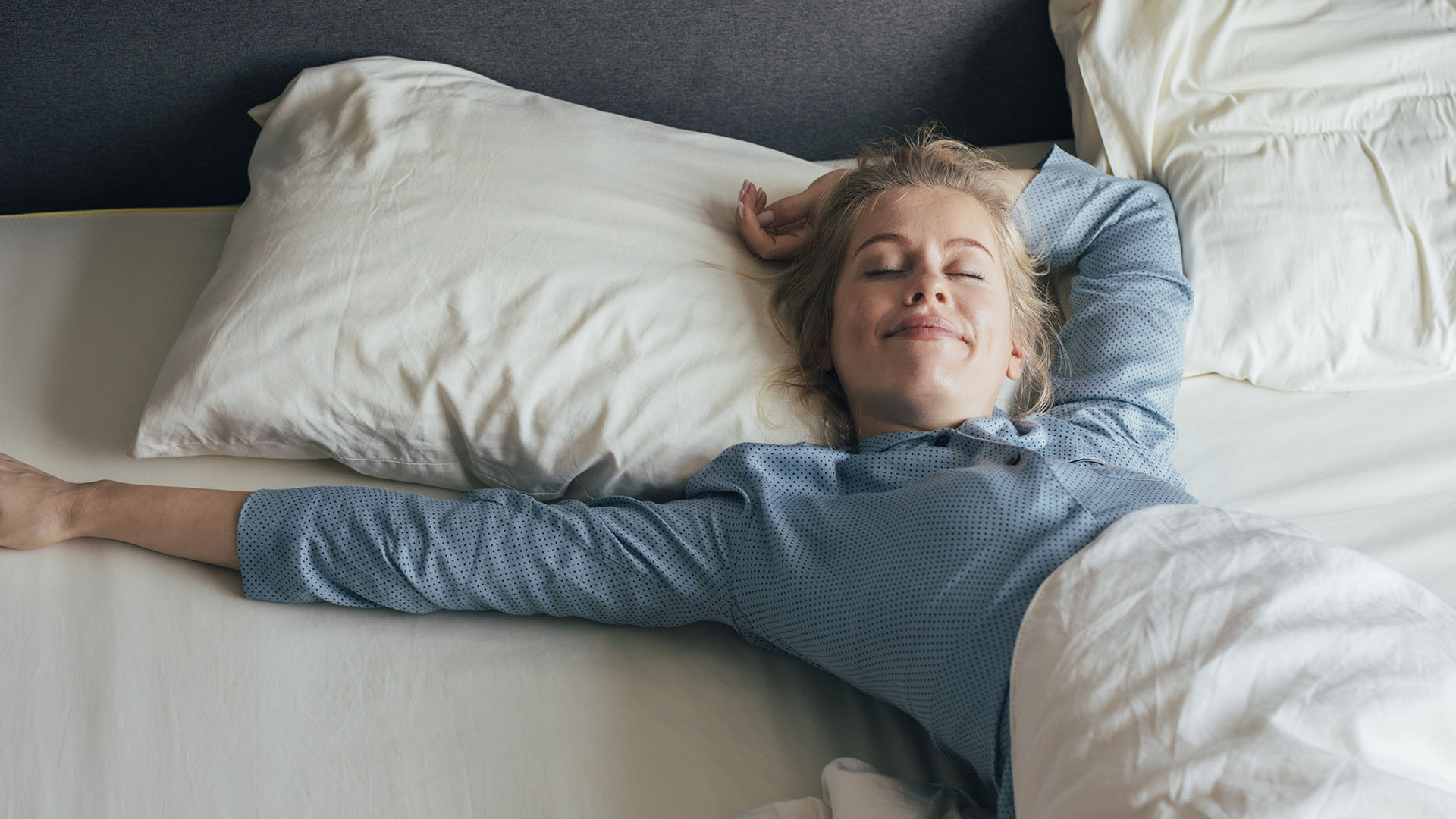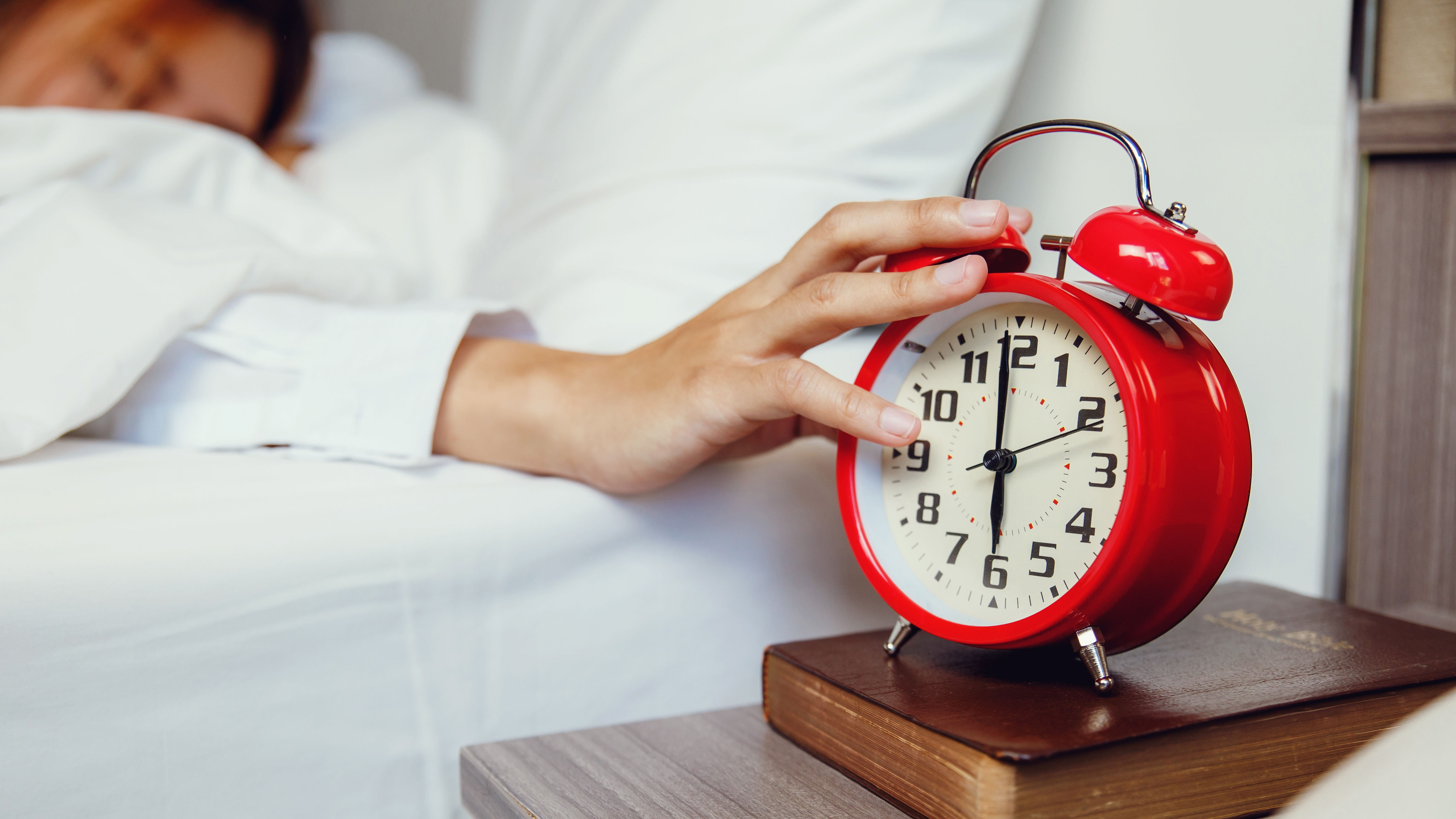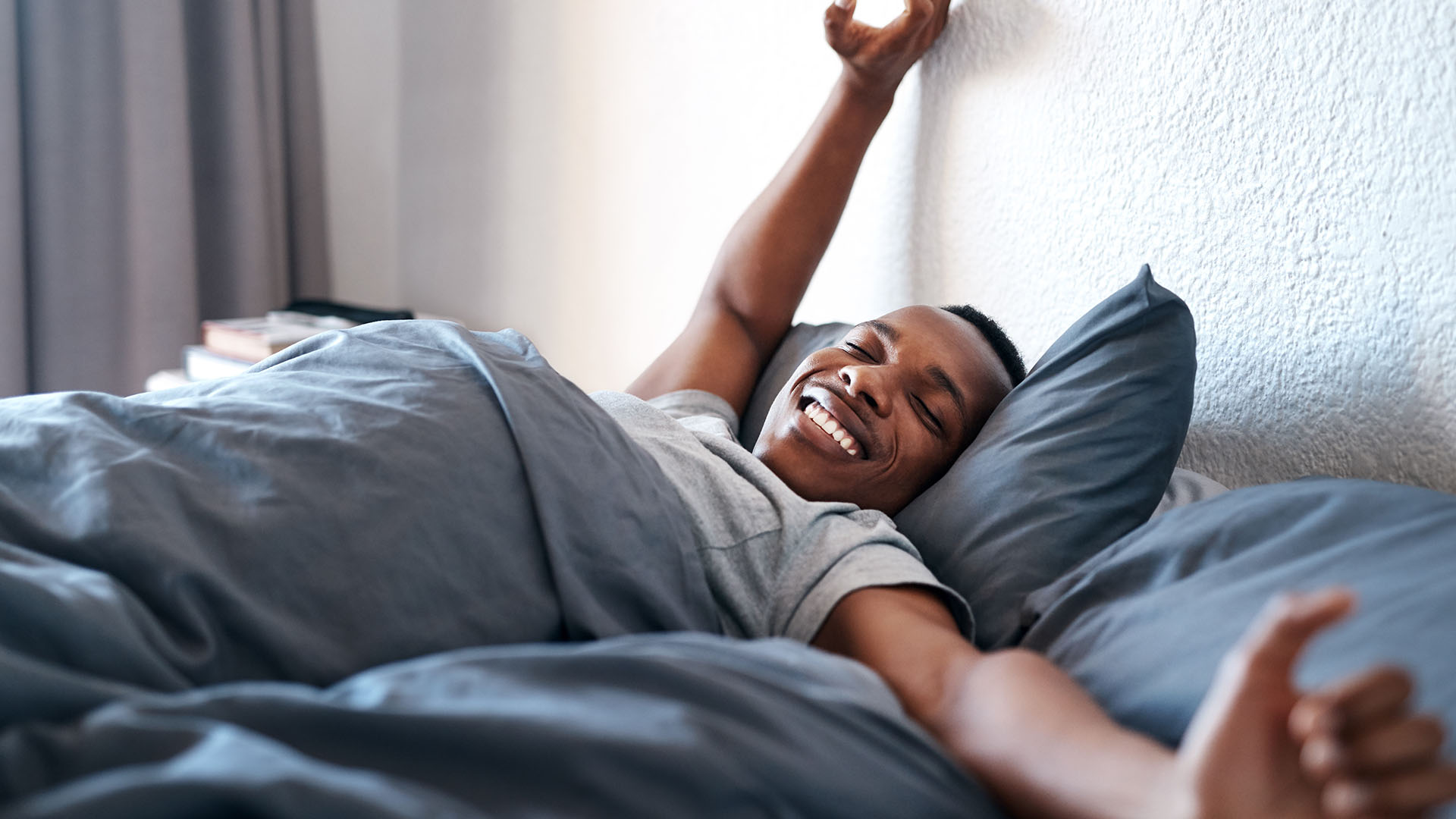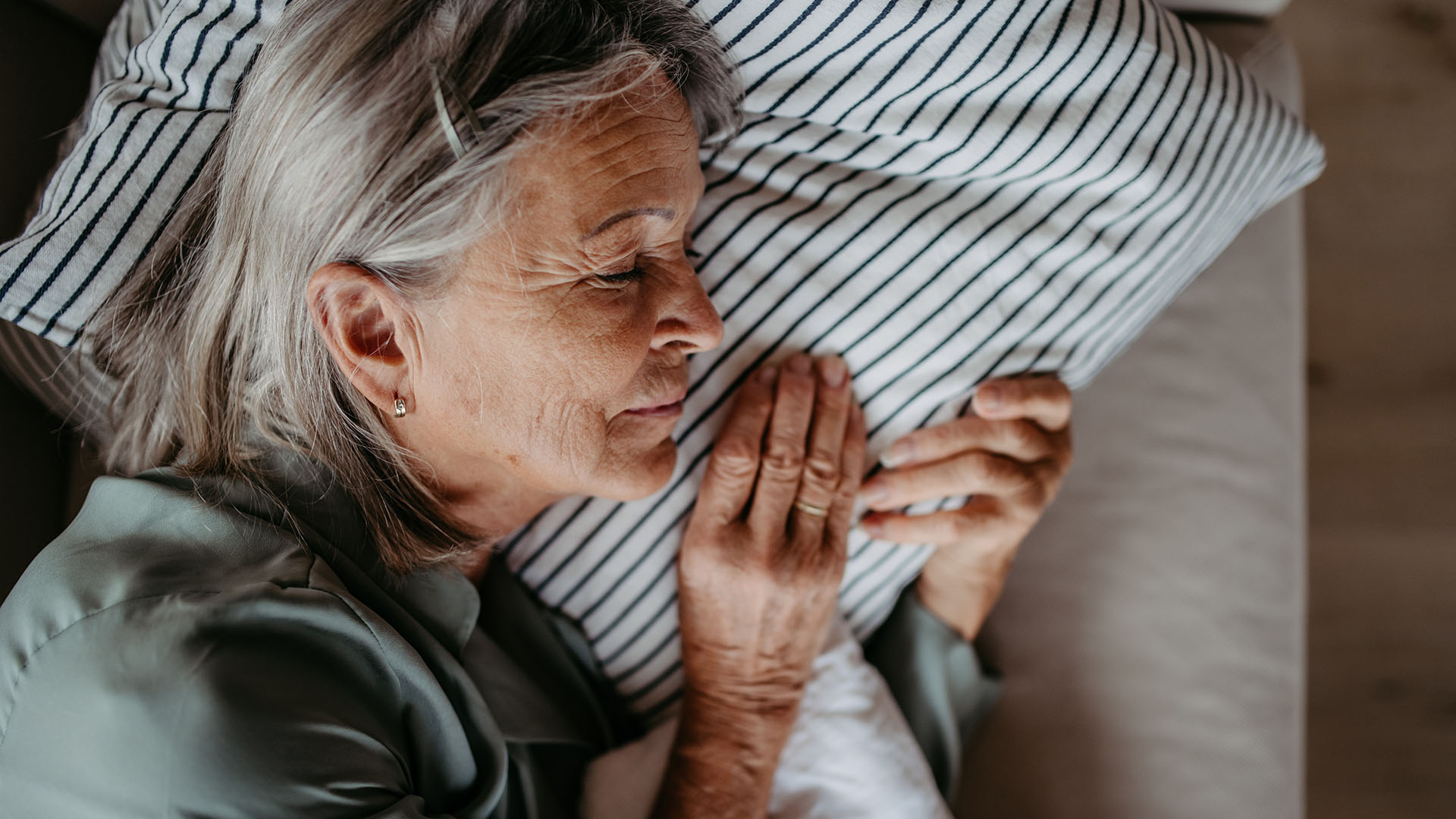Sleep for longer — the 3 best tips I've learned for getting more sleep at night
I'm sleeping for longer with these simple tips for getting more rest

Are you looking for ways to sleep for longer? You're not alone. Before working as a sleep writer, I found myself frequently missing out on hours of sleep. The thing is, I could never work out why. Even though I went to bed on time I'd lie awake, and having finally drifted off I'd often wake up in the night. To make up for it, I'd have a lie-in in the morning, but I still felt like I need to sleep for longer.
And I'm not the only one. With research indicating that fewer than half of Americans are getting enough hours sleep, it's no wonder we're all wondering how we can get more. Sleep plays an important role in our mental and physical health, and losing out on hours of sleep can seriously impact day-to-day functioning.
Since working as a sleep writer, my sleep patterns have improved leaps and bounds. I've discovered the many things I was doing wrong, and what I should be doing instead to sleep for longer. Here I'm sharing my top tips, and just how much sleep you should be getting for your age.
- Fall asleep fast — 3 breathing techniques that help me drift off easily
- Do you lay in bed for hours yet can't sleep? 7 expert tips to falling asleep fast
How to sleep longer: my 3 top tips
1. Wake up at the same time every morning
The number one thing I've learned working as a sleep writer is that you need to keep a consistent wake-up time. And yes, that includes the weekends as waking up early is the fastest way to fix your sleep after a late night. This consistent wake-up time teaches your body a routine, helping you fall asleep in the evening and wake up the next day.

Lounging around in bed for a lazy Sunday morning might seem like you're sleeping for longer, but it's not the kind of restorative rest your body needs. And when you go to bed early that the evening to prepare for a busy Monday morning, you'll probably find that you won't fall asleep fast. Expect a groggy Monday as you try to shake off all that social jet lag.
I've been developing a more consistent wake-up time and I've noticed that it's what my body wants me to do. I naturally start feeling sleepy around my designated bedtime and I now wake up earlier in the morning. And in between, I'm generally getting a good night's sleep.
2. Follow a relaxing wind-down routine
A good nighttime routine means that by the time you get into bed, you're feeling calm, relaxed and ready for sleep. It trains your body to get ready for bed, helping you fall into a deeper and more consistent sleep.
Get instant access to breaking news, the hottest reviews, great deals and helpful tips.
Before working as a sleep writer my bedtime routine was awful. I would wait until I felt sleepy, cram the entire routine into a 15-minute rush that stimulated me just before bed, and then I'd lie there, worrying that I wasn't sleeping and how that lack of sleep would affect me the next day. Essentially, I was guilty of the three biggest nighttime routine mistakes most nights.
Now I've learned to start my routine earlier, so I can get the stressful tasks out of the way before I'm feeling sleepy. I prepare my mind, body and bedroom for sleep, and this thoughtful routine helps my brain switch off. By the time I get into bed, I'm ready to drop off – not lie awake for 30 minutes hoping to get drowsy again.
3. Create a comfy space for sleeping
We all understand that a comfortable bed can help us sleep, but we're not always great at assessing how our bed setup is affecting our slumber. I used to frequently wake up in the middle of the night with an aching shoulder and a crick in the neck but it was until I worked as a sleep writer I fully realized my bed might be to blame.

My bed was getting old and soft, which didn't support me as a combination stomach and side sleeper who appreciates freedom to move. At first I rejuvenated the bed with one of the best mattress toppers, which gave me time to find the best mattress to suit my sleep needs. Suddenly, my rest was transformed.
Switching my pillow also made a big difference to just how long I slept for. It turned out the best pillow for me wasn't three old, flat pillows stacked on top of each other but one supportive pillow that cradled my head and kept my spine aligned.
Upgrading your sleep environment is an important step to enjoying longer sleep, but I know it's not the most achievable change. However, now is a great time to start shopping. The Memorial Day mattress sales are just heating up and I'm expecting to see some big savings on beds and accessories.
How long should you sleep for?
Getting enough sleep is essential for your mental and physical wellbeing, as research has shown. For the average person, a good night's sleep typically equals around eight hours of rest.
Our sleep needs change as we age, but it's generally recommended that adults between the ages of 18 and 60 get seven to nine hours sleep each night. Adults over the age of 60 need slightly less sleep at around seven to eight hours, while teenagers should be getting about eight to 10 hours rest.
These timings are only guidelines, and other factors such as your activity levels and health can influence just how much sleep you need. It's also important to ensure you're getting good quality sleep – eight hours in bed doesn't necessarily equal eight hours of rest.

Sleep hygiene tips to help you sleep longer
While these are the three biggest lessons I’ve learned during my time as a sleep writer, there are other small changes you can make during your day to help you sleep longer:
- Have your last cup of coffee at least six hours before bed. It can take hours to stop feeling the effects of caffeine, so stop drinking it by the early afternoon to avoid the jitters.
- Stop drinking alcohol three hours before bed. Alcohol might make you sleepy, but it's not a deep or restorative rest. To sleep for longer, finish your last glass of wine with dinner.
- Eat your dinner earlier in the evening. When your body is digesting food, it's not preparing for sleep. Avoid waking up with indigestion by moving dinnertime before 7pm.
- Avoid afternoon naps. Catching up on kip during the day means you probably won't sleep so well overnight. If you really have to nap, do it before noon and keep it under 20 minutes.
- Cut down screen time. Exposure to blue light from tech such as smartphones can stop you from falling asleep. If you have to use your phone, put it on night mode.
- Stay active during the day. Exercising or staying active during the day can help you fall asleep and stay asleep , but avoid rigorous exercise too close to bedtime.
- Get out of bed if you're lying awake. Lying in bed awake teaches your brain that being in bed doesn't have to mean going to sleep. Stick with the 15 minute rule: if you've been lying awake for fifteen minutes get out of bed and find somewhere else to relax until you're sleepy again.

Ruth is an experienced Senior Staff writer at Tom’s Guide, covering all things sleep and mattresses. She writes to help people sleep better, from how-tos to the latest deals to mattress reviews, and has interviewed an array of experts who share her passion. She is also our specialist on memory foam — she’s flown around the world to see memory foam being made — and leads our hotel mattress content. She has a deep interest in the link between sleep and health, and has tried enough mattresses, from Helix to Nectar to Simba, to know the right bed really can make a difference to your wellbeing. Before joining the team at Tom’s Guide, Ruth worked as a sleep and mattress writer for our sister website, TechRadar.
 Club Benefits
Club Benefits





